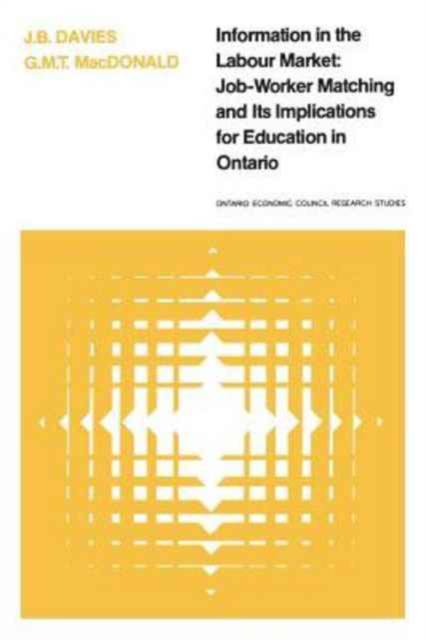
- Retrait gratuit dans votre magasin Club
- 7.000.000 titres dans notre catalogue
- Payer en toute sécurité
- Toujours un magasin près de chez vous
- Retrait gratuit dans votre magasin Club
- 7.000.000 titres dans notre catalogue
- Payer en toute sécurité
- Toujours un magasin près de chez vous
Information in the Labour Market
Job-Worker Matching and Its Implications for Education in Ontario
James Davies, Glenn MacDonaldDescription
This study uses a simple model of information gathering to generate policy recommendations concerning education in Ontario, especially at the post-secondary level. The schools are viewed as helping students discover jobs matched to their abilities, and policy prescriptions are offered from that standpoint.
After examining earlier economic models of education - seeing it in terms of human capital and signalling - the authors analyse their informational model. In the light of the three theories of education, they then proceed to examine the appropriate role of government in the education market, and offer their policy recommendations. In addition, trends in the structure of education over the last two decades are studied and explained from the economic point of view. They argue that too much has been spent on formal education and not enough on on-the-job-training, but the answer is not more government intervention or vocationalism. Education policy should encourage free choice and an increasing ability to match interests or skills with jobs. Vocationalism merely hinders the latter and endangers economic well-being in the long term.
Spécifications
Parties prenantes
- Auteur(s) :
- Editeur:
Contenu
- Nombre de pages :
- 200
- Langue:
- Anglais
- Collection :
Caractéristiques
- EAN:
- 9780802034038
- Date de parution :
- 01-08-84
- Format:
- Livre broché
- Format numérique:
- Trade paperback (VS)
- Dimensions :
- 152 mm x 229 mm
- Poids :
- 299 g







